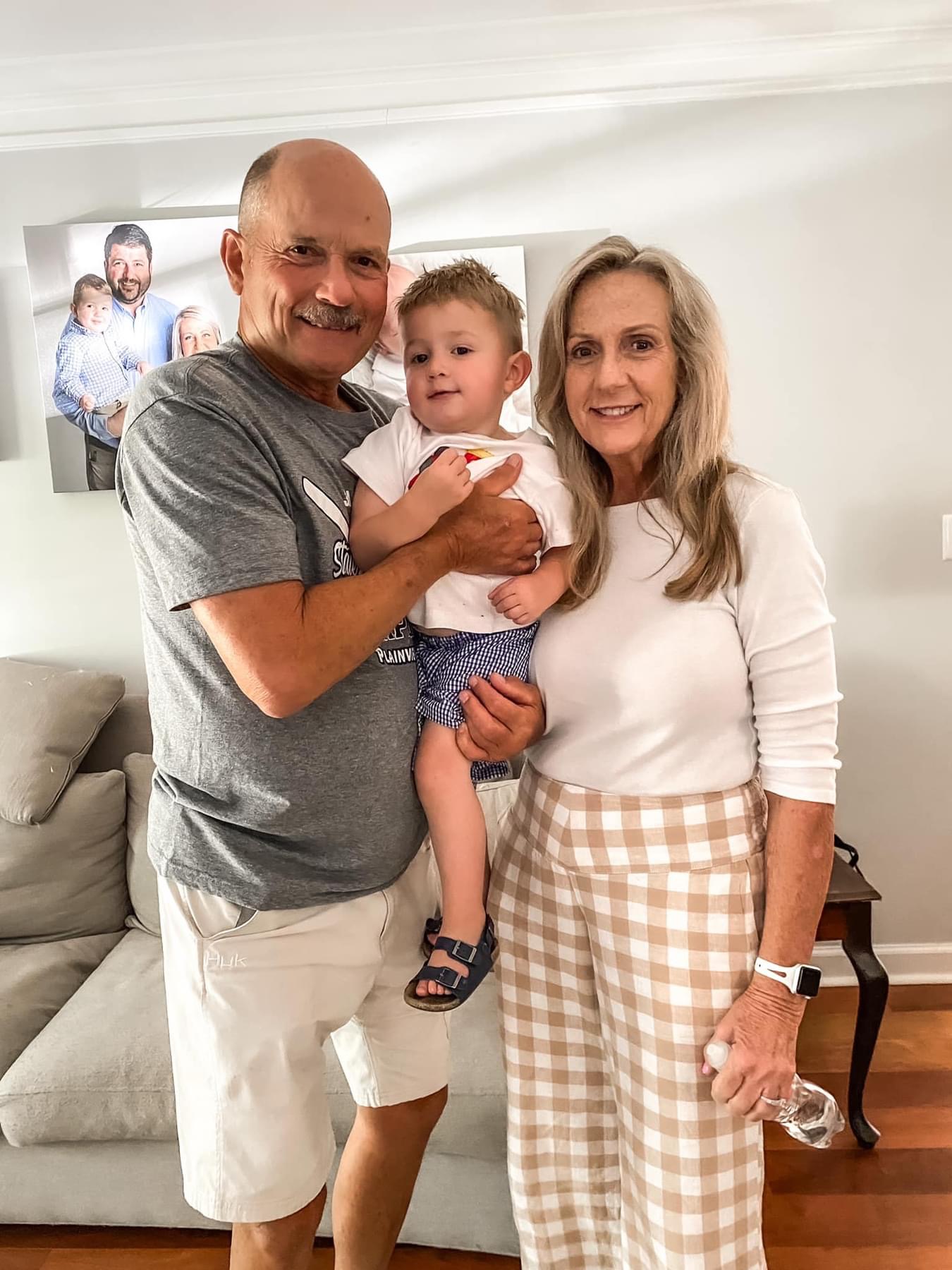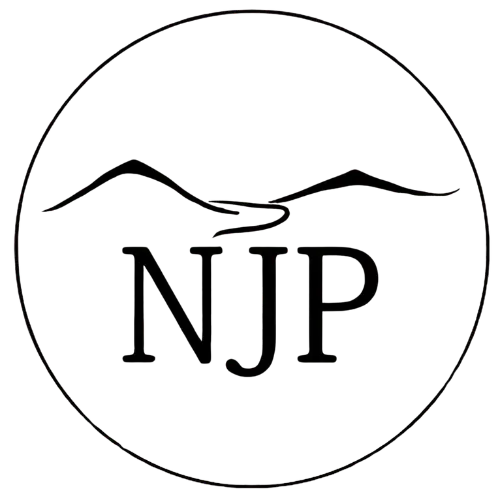A breast cancer survivor story
By Bonita Wilborn
Donna Logan’s Story
“I was in my mid-50s, and I went to the doctor for my normal Pap smear and mammogram,” Donna began. “A few days later, I got a callback, which had never happened to me before. They wanted me to come in and do another mammogram.
I really didn’t think that much about it, but I went in for the second mammogram, and a few days later, I got another callback and then a letter.”
Donna’s letter told her that there was an irregularity on her mammogram and the need for a biopsy was highly recommended.
“I went for the biopsy and found that the cancer was stage one, which was good,” Donna recalled. “At that point, they gave me a choice of either having a mastectomy or radiation.”
With a big decision to make, Donna pondered her options. With the mastectomy, no radiation would be required, but her breast would be removed. If she wanted to save the breast, radiation would be necessary.
“I thought about it and decided I didn’t want to be too aggressive and jump in for the mastectomy. So I opted for the radiation,” she said.
After doing a lumpectomy to remove the spot and a breast tissue density test, it was determined that Donna qualified for the accelerated type of radiation.
She underwent radiation twice a day for one week and received the equivalent of 30-something regular radiation treatments.
“That was the serious part for me, nerve-wracking, but they let me carry my own music to listen to during the radiation, so that helped a lot. Even though it was only one week, it was a really hard time for me. When I would walk into the building the waiting room was full of people who had cancer. Some of them looked so very sick, and it made me feel guilty because I felt great. So I couldn’t sit out in the waiting room with the rest of the people. I would go to the dressing room, change into the robe for the radiation, and then sit back there and wait until my time to have radiation. I just felt guilty because I felt great. The morning treatment didn’t cause any side effects, but because it was such a high dose of radiation, the afternoon session gave me indigestion.”
Donna continued, “I went twice a day, and it lasted for an hour each time. So, I would go in the morning, do the radiation, go to work, leave work early, and go back for another hour of radiation that afternoon. At the end of that week, they wanted me to go on a pill that would basically strip me of all hormones. It’s supposedly designed to help deter getting cancer again. But I didn’t want to do that because it just seemed too intense to me to have absolutely no hormones.”
“It’s overwhelming when you hear that you have cancer,” Donna added, “It catches you off guard. They put me on an antidepressant. I had never been a suicidal person, but while taking the antidepressant, I considered suicide.
Although the doctor had advised me that if I was going to stop taking the antidepressant, I should gradually wean myself off them, I felt that I desperately needed to stop taking it, and I stopped cold turkey. It was rough for a few days, but after that, I finally began feeling like myself again, and that’s what I wanted.”
A cancer diagnosis, treatment, and recovery is a journey, but Donna said, “I got through it, and everything was great. I was me again, and I felt great.
For three or four years, I had to go back every six months to be checked, and everything was great. They say the “golden year” is year number seven. If you can make it through seven years without your cancer recurring, you’ve done very good. So, on the seventh year, I went in for my regular mammogram and pap smear, and I got a callback.”
Due to the previous radiation and the thinning of skin tissue that resulted from it, Donna wasn’t a candidate for radiation that time so her only option was a mastectomy.
Donna said, “I prayed about it and really thought about it. I decided to get rid of the problem. Why have one removed and leave the other with the chance that it would become infected as well? So, I opted for the bilateral mastectomy (double). I tried to mentally prepare myself, but there’s no way to prepare yourself for that. I’m an upbeat person; that helped. I’m a Christian; that helped. I have church friends; that helped. Your little tribe of people around you that know what you’re going through helps. I’m the type of person that tries to appear as normal as possible even if I’m going through something terrible.”
When the surgery was over, and Donna awakened with both breasts gone, she said, “I looked down at myself, and I looked like a boy. Instead of seeing any bumps on my chest, I could see my feet sticking up at the end of the bed. That was a stark moment of reality. In years past, long before having cancer, I had breast implants. I was accustomed to having nice breasts, and then I had none at all.
As a woman, that’s just part of us whether we have large breasts or small ones. Then to look down and they’re just gone. When the bandages were removed, I looked like I’d been severely beaten. I was black, and green, and yellow, and flat.”
During her recovery from the double mastectomy, Donna had six drain tubes that she wore continually, and they had to be emptied twice daily. She stated, “I looked like the Kansas City Bomber for weeks after my surgery. The tubes were painful and hard to cover up with clothes.”
“One good thing about it now is that when they do a mastectomy, they go ahead and start reconstruction while you’re on the operating table.
They insert expanders in, and as you go for the weekly visits and healing begins, they begin to put air in the expanders a little at a time. So within a few weeks, to the public eye, under your clothes, you look like you have a small set of breasts.”
Unfortunately, Donna suffered a number of infections that followed her surgery. She recalled, “I was afraid when I went to the doctor each week that he would put me back in the hospital. I had four different antibiotics that I was taking multiple times per day and was still having unexplained infections. I would up back in the hospital four different times.”
Donna’s journey continued. “Once I got all that cleared up, the expanders stayed in for several months, then I went back for another surgery. They removed the expanders and put in the implants. Things started rocking along well. I looked better. I felt better. And the threat of cancer was assumingly over, but you never know. It can always crop up somewhere else, but I just have to put my faith in God. I feel great.
I’m very active. I feel like I’m blessed beyond measure that he brought me through it. It’s a journey, but you have to think of all the positives. You have to put your faith in a higher power because if you look at your situation, it looks very grim. But there’s so much light at the end of the tunnel and so much more life to live. It’s worth it to go through it. If I had my time to go over and could know what I know now, the first time they found cancer, I would probably go ahead and do the mastectomy. At that time, I thought it was too extreme. You don’t think about it coming back, but it definitely can.”
Donna remembered, “When I heard I had cancer, the hardest thing for me to do was tell somebody that I had cancer, even my family. I tried, but I simply could not get it to come across my tongue that I had cancer. My husband and I were sitting in the yard, and he asked, ‘What’s on your schedule for tomorrow?’ I said, ‘I’m having surgery.’ That’s when I had the lumpectomy. I was so private with it that he didn’t know anything was wrong. I did not want somebody looking at me like I was sick. Even on the day of the surgery, I drove myself to the hospital. I didn’t want anyone there making me nervous. I was by myself by choice. It was better for me.”
Donna recalled that her cancer was “estrogen-fed”, so the hormone replacement she had taken years prior was the contributor to her cancer.



